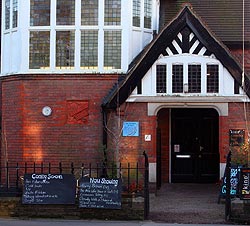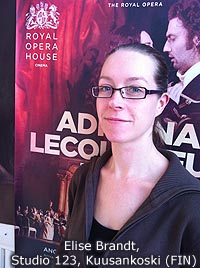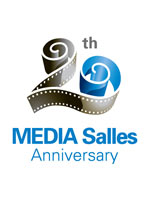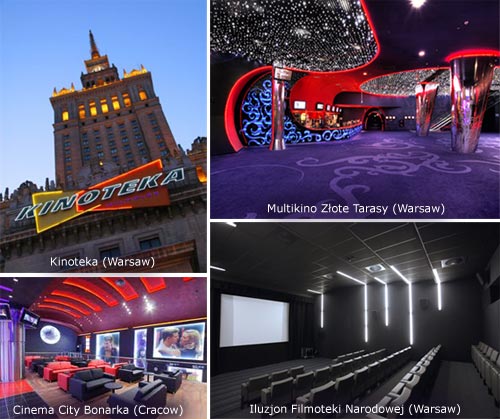|
How digital is changing programming in cinemas.
Focus on screen sharing.
By Elisabetta Brunella and Francesca Mesiano
The shift to digital projection is not - or should not be - just a matter of replacing one technology with another. Indeed it would be a waste of energy and resources if this change, with all the effort and difficulties it involves on a financial level, ended up by merely using a new projector to do exactly what was always done before, without looking for an appreciable benefit for audiences.
Instead, we should be identifying the potential that the new technologies can offer movie theatres in terms of improving the cinema-going experience, for example by means of more flexible programming and a wider range of offer - starting with films, right up to live performances - or integration with new tools, such as the social media, to better satisfy the demands of different types of audiences, creating a varied and differentiated offer, "à la carte" so to speak.
Amongst the advantages available to cinemas thanks to digitalization, so-called "screen sharing" occupies an important place: by using a digital projector it is far simpler to screen more than one title - or even alternative content - on the same screen during the day, so as to adapt to the demands of different segments of the public, for example by screening an animated film in the afternoon, without necessarily having to keep it on the evening programme.
Nonetheless, in some countries, such as Italy, this type of agreement between distributors and exhibitors is not common practice.
However, in many European countries screen sharing has become well accepted and is used by venues of very different types, including city art-house theatres and cinemas outside town centres.
 An initial example of a cinema that has made screen sharing its hallmark is the Kino Hawkhurst, a small, single-screen venue (seating 91) in the homonymous town in Kent. An initial example of a cinema that has made screen sharing its hallmark is the Kino Hawkhurst, a small, single-screen venue (seating 91) in the homonymous town in Kent.
Opened in 2006, the Kino Hawkhurst was the first cinema in the United Kingdom to be launched without a 35mm projector and ever since its opening its purpose has been to adapt its offer to the people who live in the area, where it represents the main cinema-going destination for a community that is not served by other types of movie theatres.
The cinema's programming is not only rich (up to 42 shows a week) but also diversified, adapting, partly by making use of widely popular events, to the various demands of its audiences.
Thanks to this approach, which is entirely based on audience segmentation, Kino Hawkhurst has progressed from being a cinema serving a local community to becoming a pole of attraction, even for those living in other parts of Kent or East Sussex within easy reach of a multiplex with more standard programming.
If we take a look at last week's programme, the importance given by the managers of the Hawkhurst to flexibility and variety of content immediately becomes clear.
On Monday 17 June, for example, the programme offered a blockbuster, The Great Gatsby, at the 8.45 p.m. screening but in the afternoon there were two screenings (at 1 p.m. and 6.30 p.m.) devoted to an English production, Summer in February (Christopher Menaul, 2013), the film adaptation of a novel about a community of artists living in Cornwall at the beginning of the 1900s. At 3 p.m., the Kino was showing Behind the Candelabra, the biography of the pianist Liberace presented by Steven Soderbergh at the latest Cannes Festival.
If we look at the screenings on Tuesday 18th, we see that The Great Gatsby has been moved to the morning, at 9.45 a.m., making room for Behind the Candelabra in the evening, whilst Summer in February stays on the afternoon programme.
Younger audiences are certainly not neglected: on the afternoon of Sunday 16 June, for example, a Japanese cartoon, My Neighbour Totoro by Hayao Miyazaki was screened. And there is also space for alternative content: browsing through the programme we find Pompeii Live, a virtual tour of ancient Pompeii made in collaboration with the British Museum, or dance with The Royal Ballet Dances Frederick Ashton (recorded at the Royal Opera House in February 2013), or else Shakespearian theatre, with Globe on Screen: Twelfth Night. Hawkhurst is therefore a brilliant example of how the audiences' cinema-going experience can be multiplied and diversified, despite only a single screen being available and its being located outside a big town.
 By contrast, we move next to the heart of Copenhagen in Denmark, to see how screen sharing is exploited in an avant-garde arthouse cinema, the Grand Teatret, a city institution with a century of history but also eminently "modern", having completed the digitalization of its 6 screens in 2012. By contrast, we move next to the heart of Copenhagen in Denmark, to see how screen sharing is exploited in an avant-garde arthouse cinema, the Grand Teatret, a city institution with a century of history but also eminently "modern", having completed the digitalization of its 6 screens in 2012.
Compared to the Hawkhurst the context is obviously quite different, but the close attention to programming is very similar.
The Grand has a long history of quality and art-house cinema.
Whilst the cinemas belonging to the large chain Nordisk Film, such as the Imperial, screen The Iron Man in 3D, the Grand's programme includes the inevitable The Great Gatsby but also The Angels' Share (Ken Loach), No (Pablo Larrain), the Italian Reality by Matteo Garrone as well as Blodets bånd (Blood Ties), a Danish documentary by Pernille Bervald and Christian Sønderby Jepsen. The titles alternate at different screening times during the course of the day.
Concluding this overview of European experiences, we move even further north, to Finland, another country where screen sharing is a tool that is not only accepted but also widespread, and was even before the new technologies made the practice easier.
This is what Elise Brandt of the cinema Studio 123 in Kuusankoski - a town 80km north-east of Helsinki - thinks:
 So-called screen sharing has been our way of working in Finland ever since I started in this sector (around 20 years ago by now) and as far as I know it has always been this way. So-called screen sharing has been our way of working in Finland ever since I started in this sector (around 20 years ago by now) and as far as I know it has always been this way.
In fact I don't think it makes sense to work any other way! It doesn't make any sense to screen a children's film at 8 p.m. - or a horror film on the first afternoon in the week, when its ideal audience is sitting in a schoolroom - especially in the case of cinemas with fewer than 3 screens, and when the busiest weekends may see 5 or 6 new titles coming on the same Friday.
We simply have to rely on our experience as exhibitors to know which title will work where on our programme.
Fortunately the distributors here have confidence in our knowledge of the market and audience demands. Frankly I can't even imagine an exhibitor signing a contract that obliges him to run a single title on a screen for a whole week or more.
The agreements we have here simply say that we exhibitors are authorized to screen a film in a given period, at the times that seem most suitable to us.
This is because the more we earn from a film as exhibitors, the more they, too, earn as distributors.
Alternative content is often programmed outside of the so-called "peak times", because audiences for this type of events are often different from spectators who come to see films.
Moreover the tickets for the events are booked well ahead, whilst a visit to the cinema is often a last-minute idea.
Can you really imagine a single-screen cinema being obliged to choose one title a week and keep it on the programme? I can't.
This article was published in "Cinema & Video International" no. 6/7, July 2013.
Screen sharing was the focus of the workshop organized by the Italian Associations Anec (Cinema Exhibitors), Anem (Multiplexes) and Anica (Cinema Distributors and Producers) at Ciné - Summer Cinema Days, in Riccione, on 2 July 2013.
MEDIA Salles contributed to the section "Accade in Europa" ("Experiences in Europe"), that was introduced by Elisabetta Brunella, and included a presentation of Elise Brandt's experience
Click here to see the video (English version with Italian subtitles).
(Per leggere il testo in italiano cliccare qui) |

![]()
![]()





 An initial example of a cinema that has made screen sharing its hallmark is the Kino Hawkhurst, a small, single-screen venue (seating 91) in the homonymous town in Kent.
An initial example of a cinema that has made screen sharing its hallmark is the Kino Hawkhurst, a small, single-screen venue (seating 91) in the homonymous town in Kent. By contrast, we move next to the heart of Copenhagen in Denmark, to see how screen sharing is exploited in an avant-garde arthouse cinema, the Grand Teatret, a city institution with a century of history but also eminently "modern", having completed the digitalization of its 6 screens in 2012.
By contrast, we move next to the heart of Copenhagen in Denmark, to see how screen sharing is exploited in an avant-garde arthouse cinema, the Grand Teatret, a city institution with a century of history but also eminently "modern", having completed the digitalization of its 6 screens in 2012. So-called screen sharing has been our way of working in Finland ever since I started in this sector (around 20 years ago by now) and as far as I know it has always been this way.
So-called screen sharing has been our way of working in Finland ever since I started in this sector (around 20 years ago by now) and as far as I know it has always been this way.